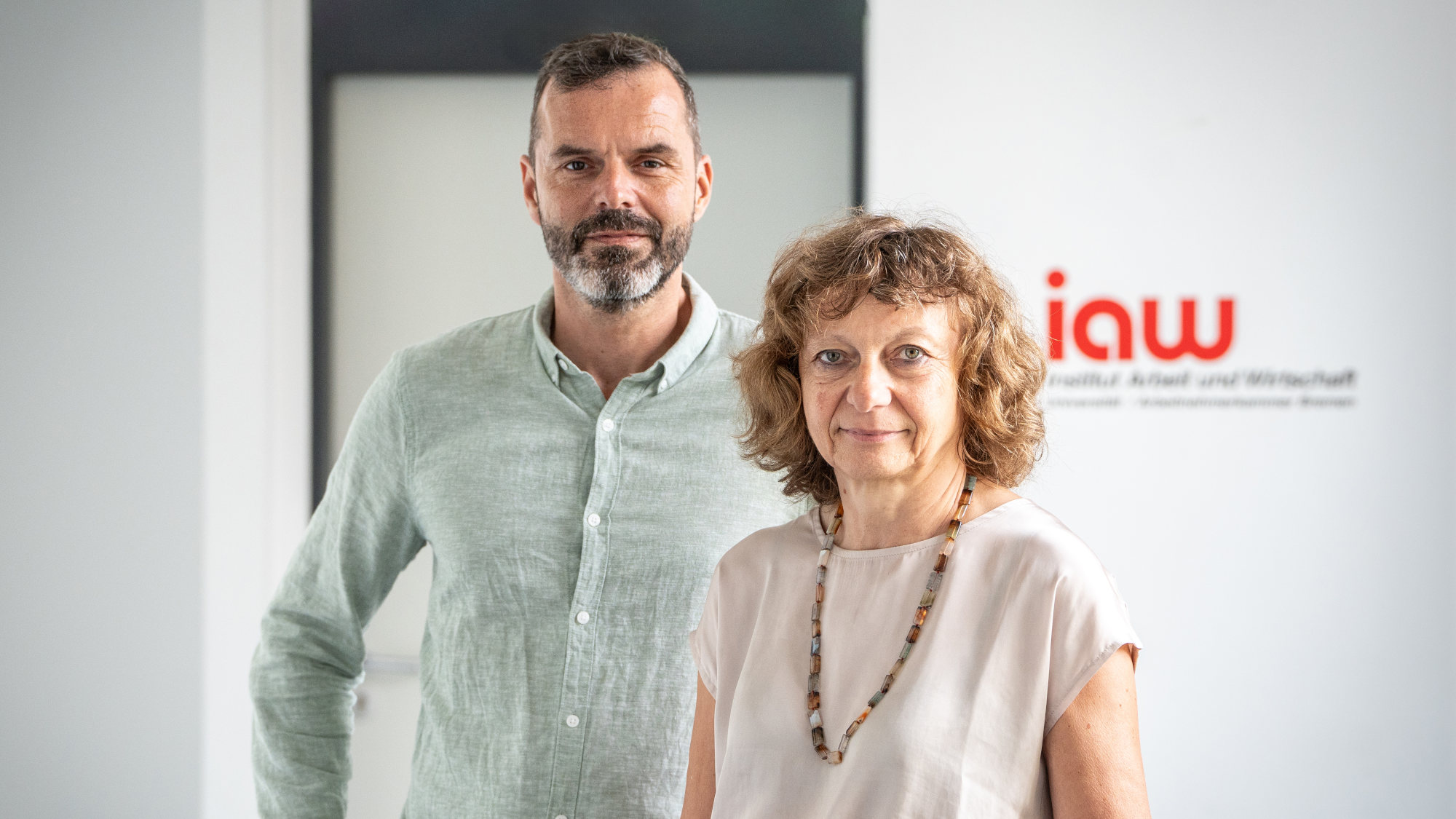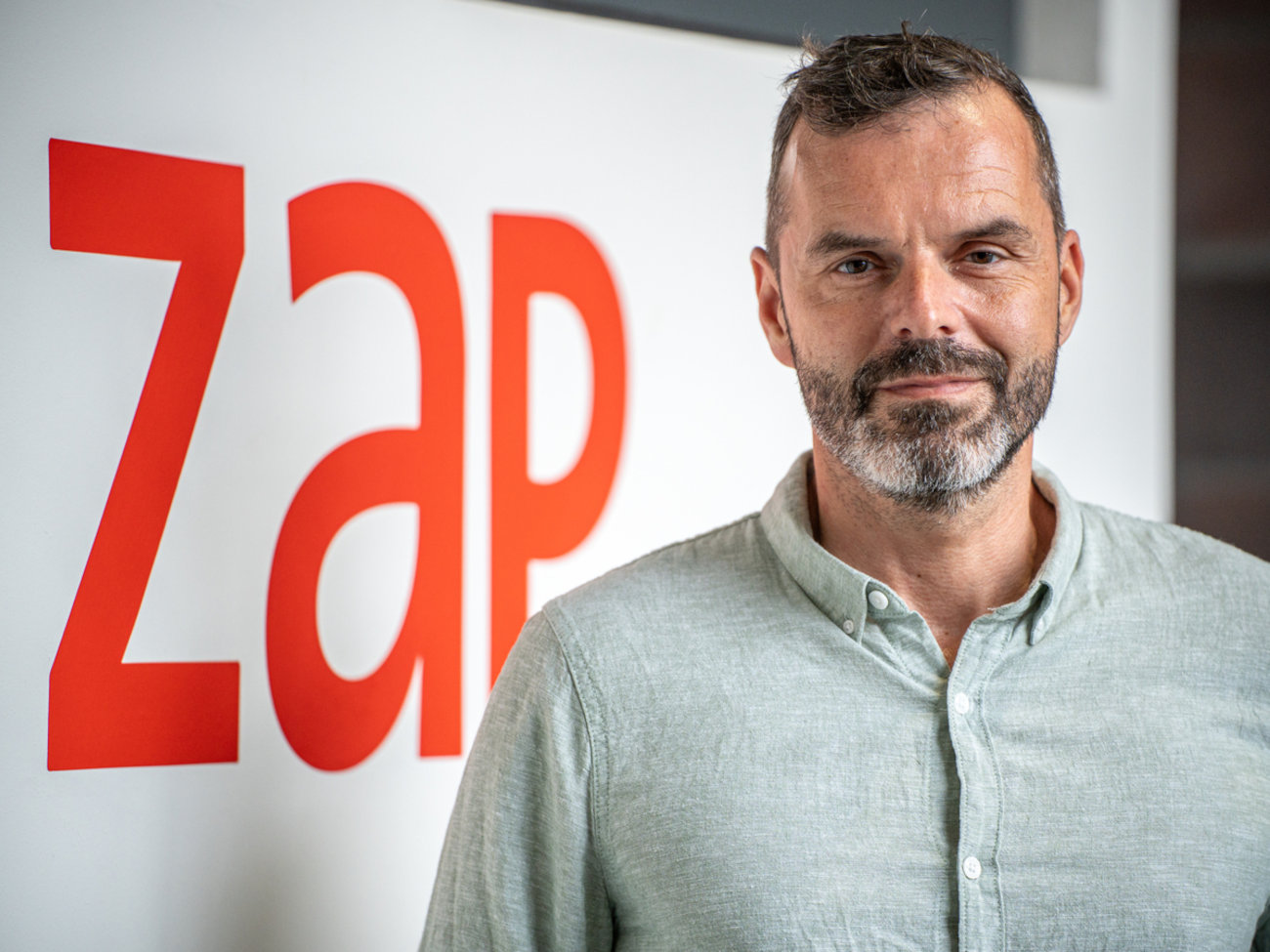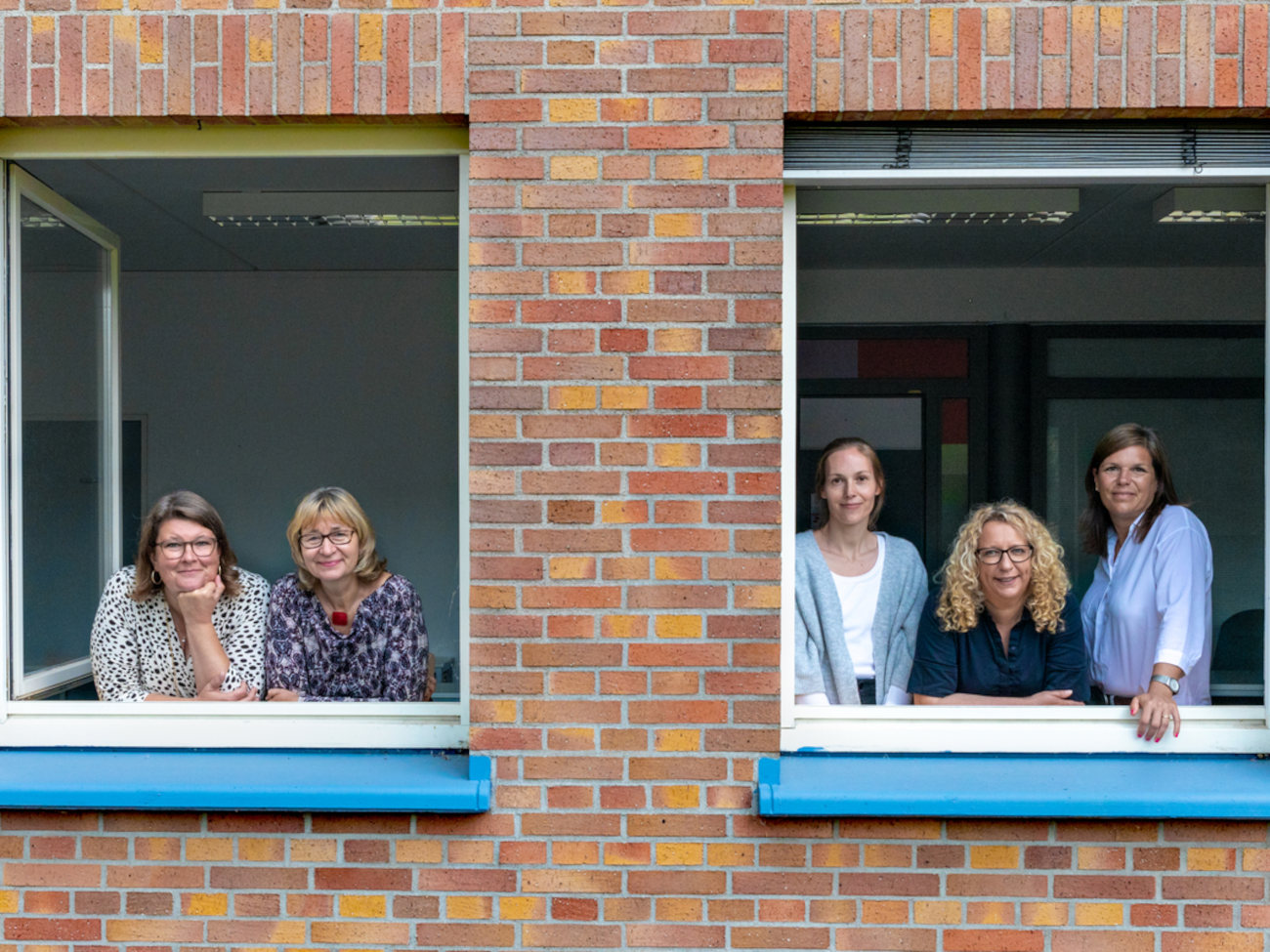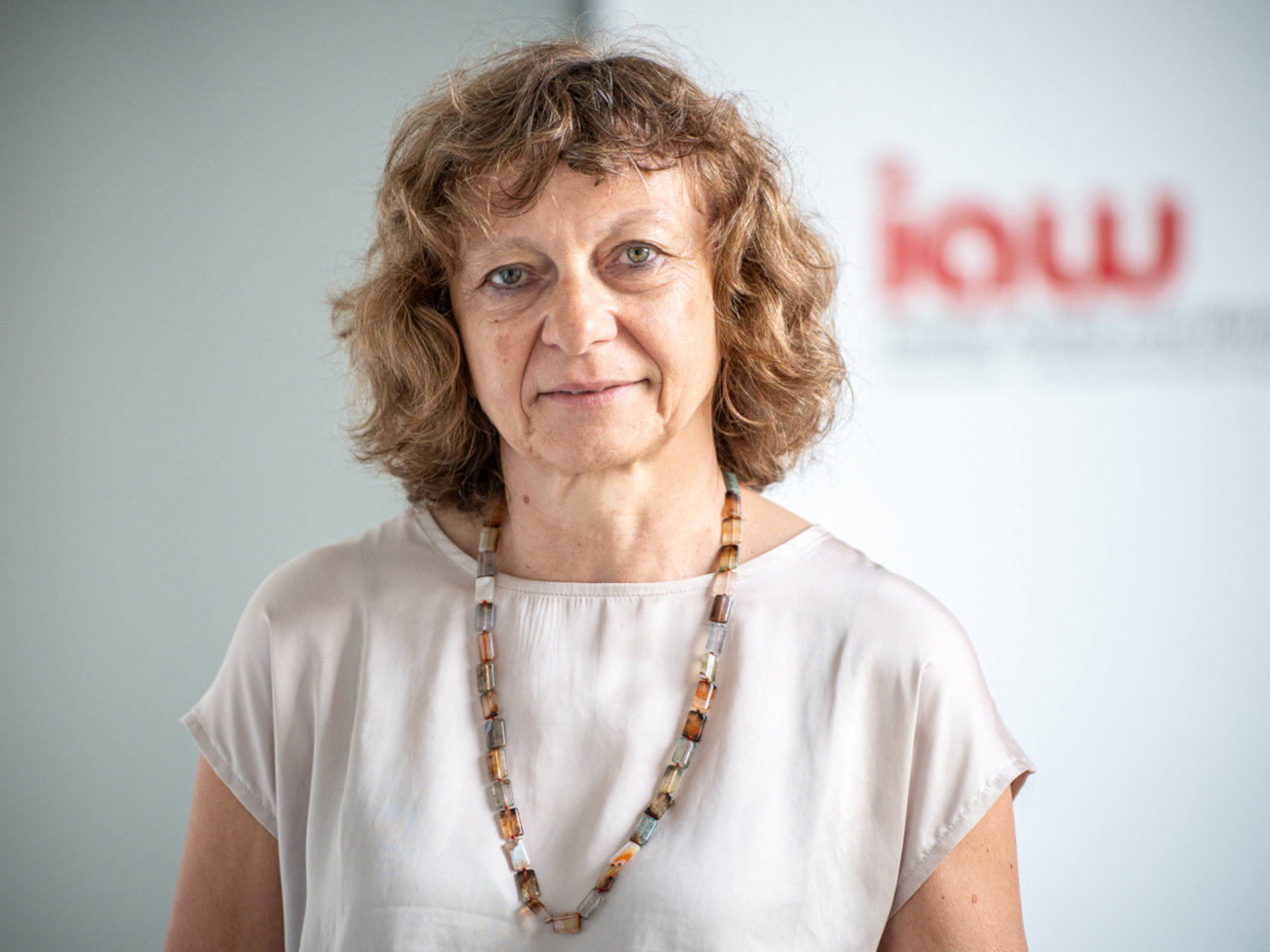
© Annemarie Popp / Universität Bremen
Off to the City Center: iaw, zap, and HERE AHEAD on the Move
There is a lot of talk about the Faculty of Law’s relocation, but two university institutes and one inter-university institution are also moving to Forum at Domshof
More than 18,000 square meters: There is plenty of space at Forum at Domshof, the university’s new location in Bremen’s city center. More space than the Faculty of Law alone needs – this is a great opportunity for the university and the municipality to move closer to the community with cooperation and service offers. Faculty 6 will be followed by iaw, zap, and the HERE AHEAD Academy.
First, what do the abbreviations mean? iaw is the Institute for Labour and Economy, which was previously located at Wiener Straße. zap, the Center of Labor and Politics, works in the same building, but has a different postal address. Finally, HERE AHEAD is the abbreviation for “Higher Education Access Development.” This joint institution of all Bremen universities is currently located at Hochschulring. It is Bremen’s alternative to the “Studienkolleg” for international prospective students.
All three institutions have one thing in common. They will all move to Forum at Domshof. “We still had space there and asked ourselves whose work is particularly connected to cooperation partners and target groups in the city center,” says Heike Hemmersbach, room manager at the university, when speaking about the planning process. The fact that iaw and zap were chosen makes sense when you look back at the decades-long history of cooperation between Bremen Chamber of Labour and the university.
So, let’s take a little trip back in time. The University of Bremen was founded in 1971. As a reform university, it was not only committed to educating students, it also focused on the education of workers. A cooperation agreement was concluded with what is now known as the Bremen Chamber of Labour. On the one hand, the aim was to conduct “research related to the world of work” with knowledge transfer of the results to society; on the other hand, there should also be specific academic training opportunities for employees.
The construct that emerged was entitled “Kooperationsbereich Universität-Arbeiterkammer (KUA)” (Cooperation University – Chamber of Labour), and after many detours and changes, today’s Institute for Labour and Economy (iaw) and the Center of Labor and Politics (zap) emerged from it. Both have a very good reputation far beyond the borders of Bremen due to their productive work.
Let’s return to the here and now. At the Center of Labor and Politics, there is a spirit of new beginnings. With only a few weeks to go, the political and social researchers will follow the law faculty. As soon as they have moved into Forum at Domshof, the removal trucks will drive to Celsiusstraße on October 21 to pick up the furniture, files, and office plants from zap. “The timing has been fine-tuned down to the last detail,” says relocation manager Heike Hemmersbach, “everything needs to go smoothly.”
“The Countdown Is On”
zap’s current 18 employees are looking forward to the move. Institute director Professor Andreas Klee states, “the countdown is on.” The layout of the new space differs significantly from the previous premises in the FVG building. This is an opportunity to modernize the institute’s library and update archive holdings.

© Annemarie Popp / Universität Bremen
According to Klee, the Center of Labor and Politics considers the move “a great opportunity for their work.” In fact, zap was already interested in a city center location when a Brill campus was being discussed. “We cooperate with schools and other educational institutions, with politicians, the Bremen Chamber of Labour, the Regional Center for Political Education, and many other institutions and bodies. For this, the location in the city center is ideal,” Klee emphasizes. Being within easy reach also plays a major role for continuing and adult education – one of zap’s main services. “We already had a branch in the former Am Barkhof school years ago,” recalls the university lecturer. “Even back then, a location close to the city center was very well received.”
HERE AHEAD Academy: Easier to Reach for Students from All Universities
The next step will be relocating the “Academy for Higher Education Access Development” – HERE AHEAD in short – on October 28. The institution is a cooperation between all public universities in Bremen State. Its task is to develop and implement preparatory programs for international students. Studying at a German university is very challenging, especially for international students. In addition, school-leaving qualifications from many non-EU countries are often not recognized as equivalent to the German Abitur. HERE AHEAD offers these young people advice, language and subject-related preparation classes, as well as the opportunity to take an exam granting access to the universities in Bremen.

© Matej Meza / Universität Bremen
“We started a few years ago in an office in the House of Science, so we were already centrally located in the city,” reports managing director Christina von Behr. “As we work on behalf of the Senator for Science for all universities in Bremen State, a central location is ideal simply because of it being easy to reach. Being close to the main train station is also a relief for students from Bremerhaven.” The location at Domshof offers yet another advantage. The CASA language school is within walking distance of Forum at Domshof. CASA is a cooperation partner of HERE AHEAD and helps its target group to achieve the C1 German language level. With five employees, HEARE AHEAD is moving to the fifth floor, where it will be located between zap and iaw.
iaw Relocation Completion in February 2025
Eventually, the Institute for Labour and Economy (iaw) will follow in February of next year. “There are organizational and logistical reasons why we are the last to move into Forum at Domshof,” institute director Professor Irene Dingeldey explains. It gives the more than 30 employees a little more time to sort out and pack their things. The director wants to set a good example. “I will discard at least 50 percent of the paperwork in my office,” she is determined. Just as at Wiener Straße now, the iaw will also be moving into mainly small individual offices on the 5th floor of Forum at Domshof, but with a beautiful panoramic view of the Liebfrauenkirche church and the flower market.

© Annemarie Popp / Universität Bremen
Like any change, the announcement that the new location would be in the city center in the future naturally caused a little unease at first. However, the obvious advantages of the new location and the rationale behind the move are now visible. “There are few institutes at the university that have such a close connection to the urban community as we do – and have had for several decades,” states Dingeldey. “From there it is only a stone’s throw to our cooperation partner, the Bremen Chamber of Labour. We also work with all senate departments in our social and political science work, as well as with associations, organizations, and stakeholders in local politics. Domshof is an ideal location to implement our knowledge transfer approach and contribute social science research for the benefit of society. For many issues affecting Bremen State, we provide a scientifically sound basis for opinion-forming and political decision-making – from organizing daycare centers and the problem of employee mobility in industrial estates to the development of dual study programs.”